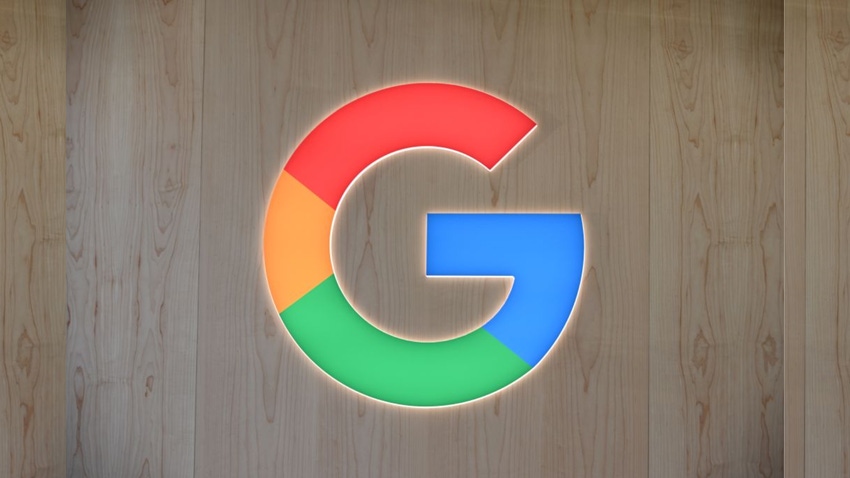Google's 'Gemini Era': Embedding Gen AI in Everything It Does
Google's powerful large multimodal model, Gemini, is coming to search, ads, cloud, Bard and more. Is a Bard paid subscription coming?

At a Glance
- Sundar Pichai, CEO of Google and parent Alphabet, said generative AI will be infused throughout its products and services.
- Its powerful large multimodal model, Gemini, will supercharge search, ads, cloud, Bard, YouTube and more.
- Pichai also hinted that a paid subscription of Bard, powered by the mammoth Gemini Ultra, could be coming.
Google is upping the ante in the AI race by leveraging its most powerful large multimodal model, Gemini, to supercharge its core products and services. This includes adding AI agents to search.
Saying the company has launched the “Gemini era,” Alphabet and Google CEO Sundar Pichai noted that its Gemini family of models will underpin its suite of products including search, cloud, YouTube, Workspace and Bard.
Speaking during Alphabet's Q4 2023 earnings call this week, the CEO told analysts that adding generative AI to search would make it “act more like an agent over time” to “go beyond answers and follow through for users even more” by autonomously executing on their search results.
Pichai added that the company is already experimenting with Gemini to enhance search. He said that results have seen a 40% reduction in latency in English searchers in the U.S.
“By applying generative AI to Search, we are able to serve a wider range of information needs and answer new types of questions, including those that benefit from multiple perspectives,” Pichai said.
Gemini was built to understand and combine text, images, audio, video and code in a “natively multimodal way,” he added. It also can “run on everything from mobile devices to data centers,” tapping into two of the biggest trends in AI models, which are multimodality and edge computing.
Google’s plans will put pressure on OpenAI, which is working on GPT-5, and strategic partner and investor Microsoft, which competes with Google largely in cloud computing and office tools.
Bard subscription coming?
Already, Google’s Bard, its rival to ChatGPT, has been enhanced by underpinning it with Gemini Pro instead of an older large language model, PaLM 2. It recently beat GPT-4 in chatbot rankings.
Pichai said Gemini Ultra, the largest model in this family, will soon come to Bard. He hinted that a premium Bard subscription might be coming, following in the footsteps of ChatGPT Plus and Microsoft’s Copilot Pro.
Bard is “now powered by Gemini Pro and is much more capable at things like understanding, summarizing, reasoning, coding, and planning. It’s now in over 40 languages and over 230 countries around the world. Looking ahead, we’ll be rolling out an even more advanced version for subscribers, powered by Gemini Ultra,” he said.
Generative AI coming to Google Ads
Alphabet's Chief Business Officer Philipp Schindler told analysts that more advanced generative AI tools are coming to Ads to help users “build better campaigns and even better-performing ads.”
“Automatically created assets help advertisers show more relevant search ads by creating tailored headlines and descriptions based on each ads’ context,” Schindler added.
Chief among those AI advertising features is a new conversational experience in Google Ads being powered by Gemini. It is currently in beta to U.S. and U.K. advertisers, with early tests showing that advertisers are “building higher-quality search campaigns with less effort, especially SMBs who are 42% more likely to publish a campaign with good or excellent ad strength,” he said.
YouTube on the rise
Among the financial highlights in Q4 for Alphabet were subscriptions reaching $15 billion in annual revenue, up five-fold since 2019. Services such as YouTube Premium and Music contributed heavily to the rise, with the company planning to add further AI features to keep users subscribed.
Schindler said generative AI was “supercharging” content creation on the platform. He told analysts that more AI-powered creative tools are to come. Last year, Google unveiled Dream Screen for YouTube, which creates AI-generated backgrounds for content.
In the works are voice cloning tools enabling users to create snippets of content of their favorite artists. That service is being powered by Lyria, a DeepMind-developed AI model that creates music from words.
Revenue rose but shares dip
Alphabet recorded a 13% year-over-year rise in overall revenue to $86.3 billion in the quarter compared to $76.1 billion. For the year, the top line was up 9% to $307.4 billion. Net income rose 52% to $20.7 billion ($1.64 per share) in the quarter and up 23% for the year to $73.8 billion ($5.80).
Shares fell 7.5% to $140.10 today, the first day of trading after reporting earnings. BofA Global Research analyst Justin Post said search revenue fell short of “high expectations,” in a note shared with AI Business. Also, Google is planning to increase capital expenditures “significantly” in 2024, which is a negative takeaway despite the company performing well otherwise, he wrote.
Pichai said earlier this month that layoffs are coming, though not on the scale seen in 2023. The company has “wound down some non-priority projects, which will help us invest and operate well in our growth areas," he said in the call with analysts without directly mentioning job cuts. CFO Ruth Porat added that they would be “streamlining operations across Alphabet through use of AI.”
Read more about:
ChatGPT / Generative AIAbout the Author(s)
You May Also Like




.jpg?width=700&auto=webp&quality=80&disable=upscale)
.jpg?width=700&auto=webp&quality=80&disable=upscale)
.jpg?width=700&auto=webp&quality=80&disable=upscale)
.jpg?width=300&auto=webp&quality=80&disable=upscale)
.jpg?width=300&auto=webp&quality=80&disable=upscale)
.jpg?width=300&auto=webp&quality=80&disable=upscale)
.jpg?width=300&auto=webp&quality=80&disable=upscale)
.jpg?width=300&auto=webp&quality=80&disable=upscale)